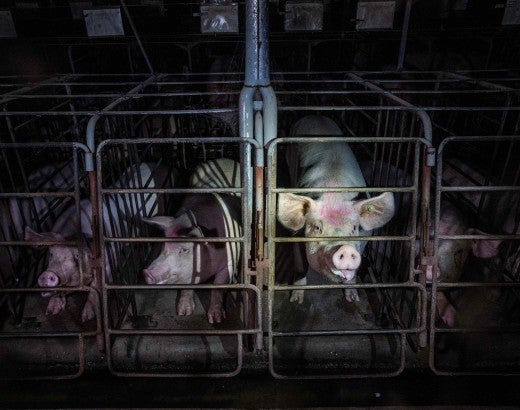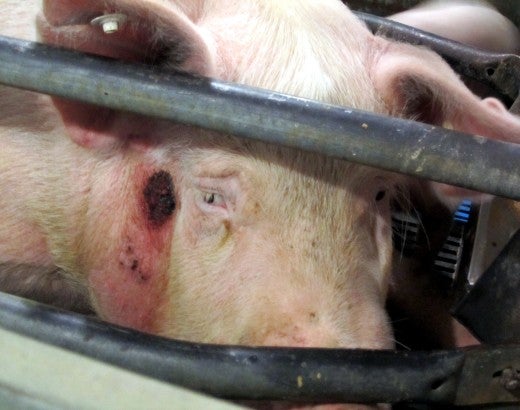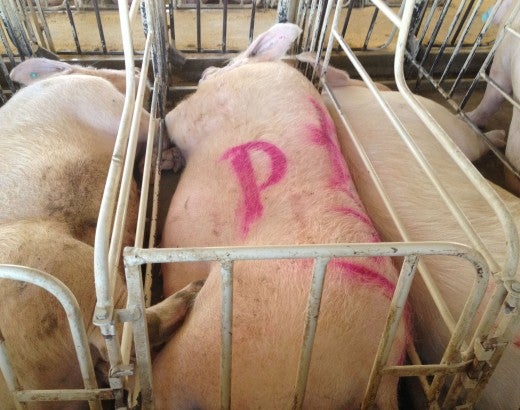When the Supreme Court of the United States upheld California’s Proposition 12 last year against a challenge from pork producers eager to keep mother pigs in extreme confinement, animal advocates celebrated and hoped that recalcitrant producers would see the writing on the wall and cease their endless challenges to commonsense confinement standards which have now been passed in 15 states, including Arizona, Ohio and Florida. Instead, two additional legal challenges in California and Massachusetts—brought by pork producers who didn’t get the memo—went forward. Now, both those challenges have been quashed.
This week, in the case of Triumph Foods v. Campbell, the U.S. District Court, District of Massachusetts, upheld the constitutionality of Question 3, the state’s landmark 2016 ballot measure prohibiting cruel confinement of breeding pigs, egg-laying hens and calves raised for veal as well as the sale of meat and eggs that come from such confinement systems. The court sided with the staggering 78% of Massachusetts voters who enacted the law, proclaiming that it “is not preempted” by federal law as the pork producer plaintiffs had argued.
We were overjoyed with this news. For more than a decade, Humane Society of the United States lawyers have been on the front lines of defending the nation's farm animal protection laws from a nearly unending series of legal attacks. Throughout the course of the lengthy Massachusetts case, HSUS’ legal team, with the firm Riley Safer Holmes & Cancila, filed multiple briefs in support of Question 3. Other animal welfare organizations joined these briefs, too, including the Massachusetts Society for the Prevention of Cruelty to Animals, the Animal Rescue League of Boston, Animal Legal Defense Fund, Animal Outlook, The Humane League, Farm Sanctuary, Animal Equality and Compassion in World Farming.
We are immensely grateful to the Office of the Attorney General of Massachusetts, which has steadfastly defended Question 3.
The Massachusetts decision comes on the heels of last month’s similarly exciting decision in Iowa Pork Producers Association v. Bonta, which had lingered on in the California courts even after the Supreme Court upheld Proposition 12 last year. After hearing oral arguments in which HSUS lawyers led a coalition of animal welfare intervenors, a panel of judges in the 9th Circuit Court of Appeals rejected producers’ attempts to distinguish their case from that lost by the National Pork Producers Council and its allies at the Supreme Court. The California federal court once again affirmed the constitutionality of Proposition 12 on multiple grounds.
States spanning the political spectrum, from red to purple to blue, have passed laws to protect farm animals from extreme confinement. And despite that, this backwards faction of the pork industry keeps spending money on losing lawsuits and futile congressional “fixes” to override confinement laws, even while a growing number of pork producers large and small—including Hormel, Perdue’s Niman Ranch brand and Tyson— have signaled their willingness, ability and even their desire to move away from immobilizing pig crates and meet the regulatory and popular demand for safer and more humane products. For example, Seaboard Foods (one of the largest pork producers in the world) has noted that its farms “raise market hogs born from sows in various housing types based on customer requirements, including . . . for Prop 12 group housing compliant for California.”
In fact, even as the Iowa Pork Producers Association seeks review of the 9th Circuit’s decision to uphold Proposition 12, its president has recently stated that “there’s been enough production change to meet Prop 12 demand” for crate-free pork.



